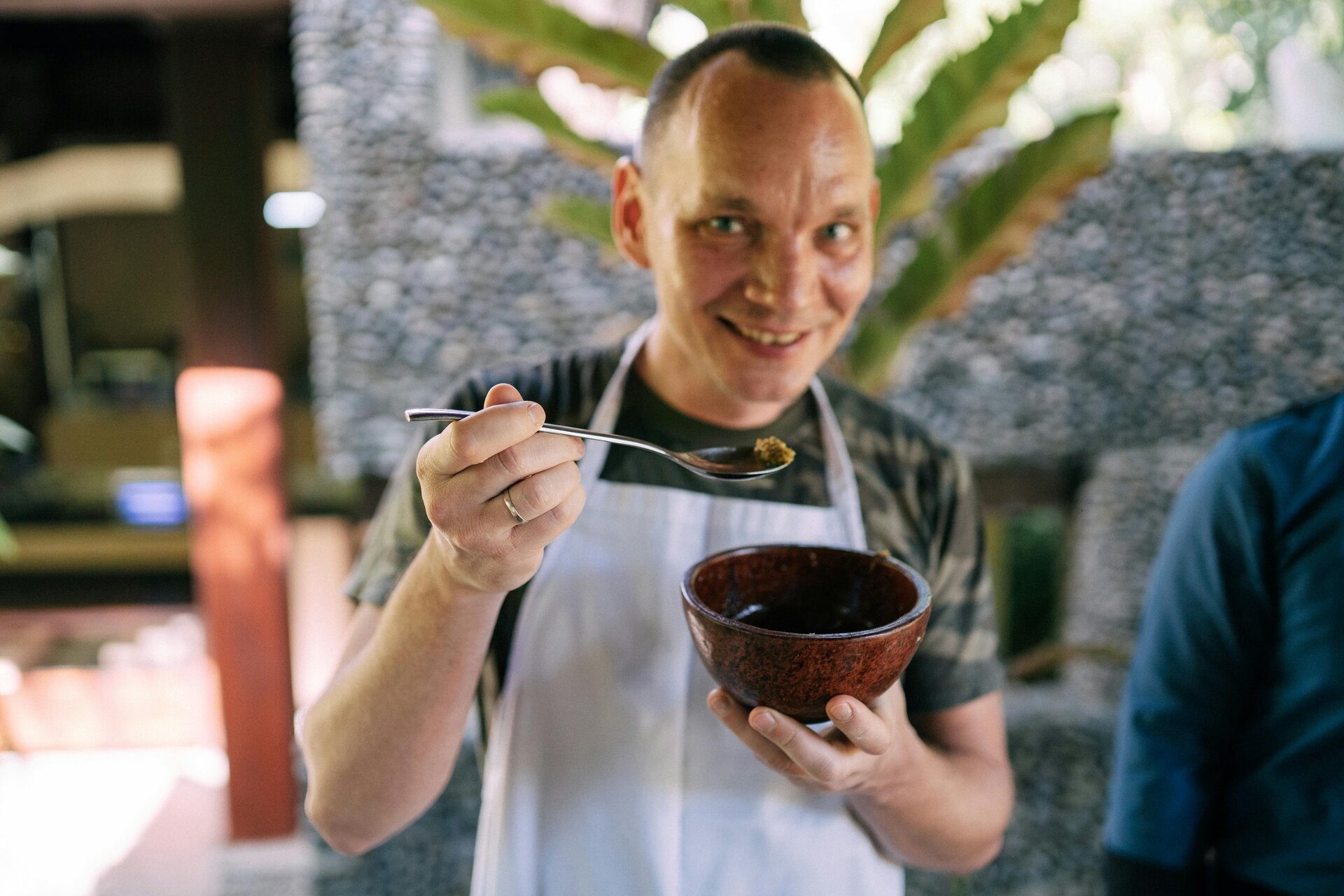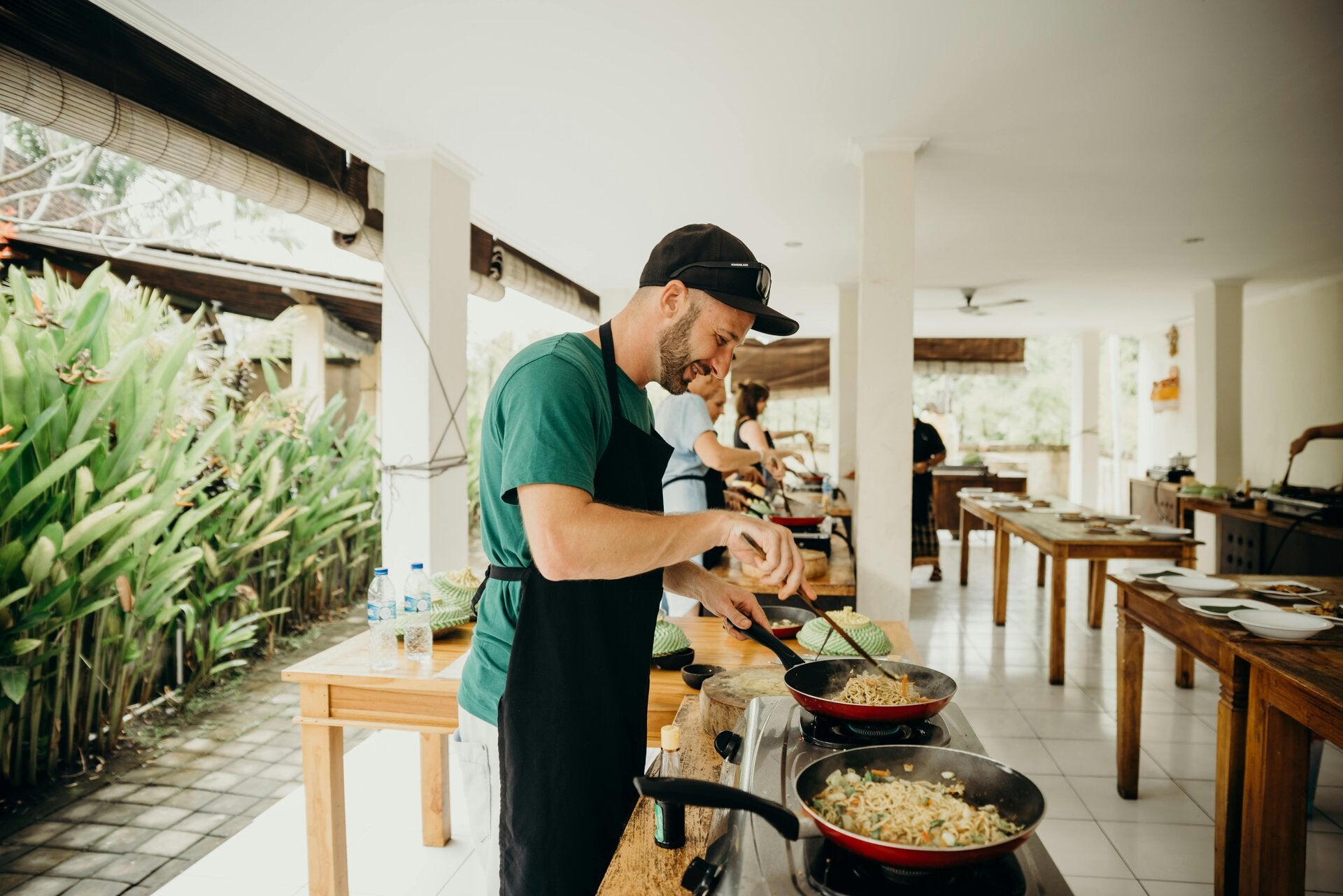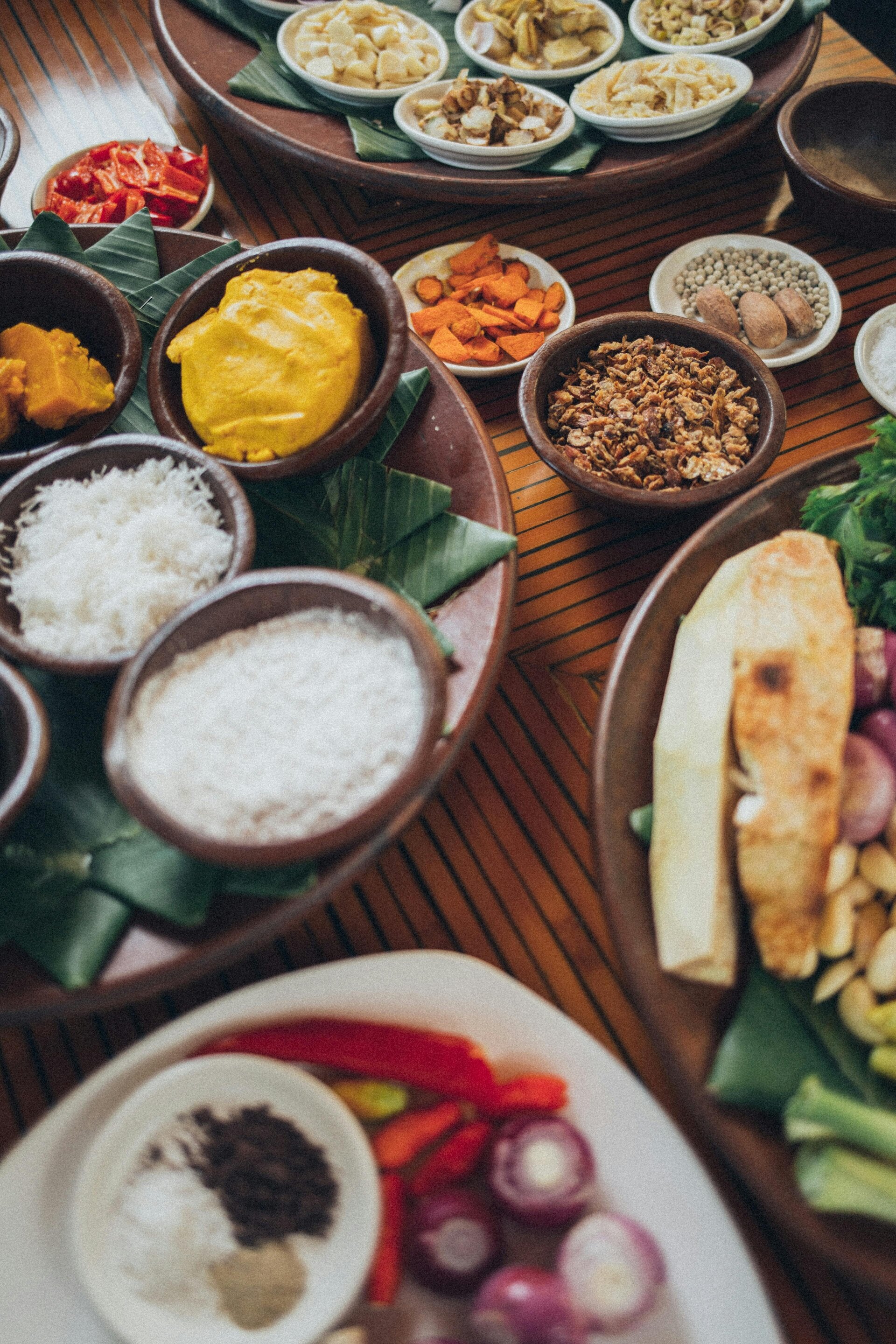Cooking Classes in Bali
Discover the rich flavors and culinary traditions Bali has to offer. From learning to make classic dishes to exploring local ingredients, find what makes Balinese cooking special.
**Discover Authentic Balinese Cuisine in Kaba Kaba, Tabanan**
Nestled in the heart of Bali, the serene village of Kaba Kaba, Tabanan, offers a unique culinary experience for anyone eager to delve into the rich flavors of Balinese cuisine. This region is not only known for its lush landscapes and tranquil atmosphere but also for its vibrant food culture that beckons to be explored through immersive cooking classes.
**Why Choose Cooking Classes in Kaba Kaba?**
Opting for a cooking class in Kaba Kaba allows you to step away from the bustling tourist hubs and engage with Bali's culinary roots in an authentic setting. The classes here focus on traditional Balinese recipes, providing insights into the island’s storied food traditions. What makes these classes truly special is the use of fresh, locally sourced ingredients, often harvested from nearby farms or gardens.
**A Personal Journey Through Balinese Flavors**
During my time in Kaba Kaba, I had the pleasure of joining a cooking class that not only taught me the nuances of Balinese cooking but also connected me to the local culture. The experience began with a visit to a local market, where we selected fresh spices, vegetables, and meats. Guided by a knowledgeable local chef, we learned to grind spices with a traditional mortar and pestle, a technique that enhances the flavors and aromas of the dishes.
One of my favorite recipes from the class was "Bebek Betutu," a Balinese roast duck dish marinated with an aromatic mix of spices and slow-cooked to perfection. The process of preparing this dish was both intricate and rewarding, as it encapsulated the essence of Balinese cooking—patience, attention to detail, and a celebration of natural flavors.
**Try This Recipe at Home: Balinese Bebek Betutu**
*Ingredients:*
- 1 whole duck, cleaned
- 4 cloves garlic, minced
- 2 shallots, chopped
- 1 stalk lemongrass, chopped
- 2 inches fresh turmeric, grated
- 2 inches fresh ginger, grated
- 2 inches galangal, grated
- 5 kaffir lime leaves, torn
- 1 tablespoon coriander seeds, crushed
- 1 tablespoon peppercorns, crushed
- 2 tablespoons coconut oil
- Salt to taste
- Banana leaves or aluminum foil for wrapping
*Instructions:*
1. In a large bowl, mix the garlic, shallots, lemongrass, turmeric, ginger, galangal, kaffir lime leaves, coriander seeds, and peppercorns with coconut oil and salt to form a paste.
2. Rub the spice paste all over the duck, ensuring it’s well coated inside and out.
3. Wrap the duck in banana leaves or foil, ensuring it’s tightly sealed.
4. Roast in a preheated oven at 180°C (350°F) for approximately 2-3 hours, until the duck is tender and fully cooked.
5. Serve hot, accompanied by rice and a selection of Balinese sambals.
**Conclusion**
Cooking classes in Kaba Kaba, Tabanan, provide an intimate glimpse into the heart of Balinese culinary traditions. Whether you’re a seasoned cook or a curious traveler, these classes offer a rewarding way to experience Bali’s vibrant food culture. Not only do you learn to prepare delicious dishes, but you also take home stories and memories that enrich your understanding of this beautiful island.

Unique Flavors: Treasures of Balinese Cuisine
Cooking enthusiasts can learn to make unique Balinese dishes such as Nasi Goreng (fried rice), Gado-Gado (vegetable salad with peanut sauce), Sate Lilit (minced seafood satay), and Bebek Betutu (slow-cooked duck). Classes often include visits to local markets to select fresh ingredients and hands-on preparation techniques taught by experienced local chefs.

Hands-On Cooking Experience

Must-Visit Cooking Class Destinations
Cooking classes in Bali offer the opportunity to learn to prepare iconic dishes like Lawar (minced meat with vegetables and coconut), Jimbaran seafood, and traditional sweets like Klepon. Participants can explore local farms for ingredients like lemongrass and galangal, learn the secrets of spice blends, and create dishes that capture the essence of Balinese cuisine.
Etiquette for Cooking Classes
When attending a cooking class in Bali, show respect for local customs by dressing modestly and being punctual. Use your right hand when handling food and ingredients, and always listen carefully to the instructor. Engage actively in the preparation process and be mindful of cleanliness and hygiene in the kitchen.
